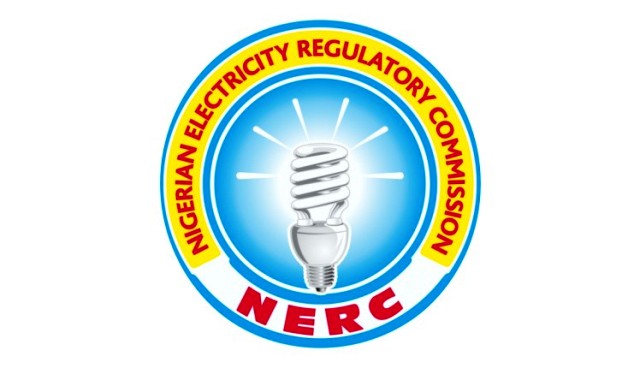Oil & Energy
Group Lauds NERC For Suspending Electricity Tariff Increase

A group, known as All Electricity Consumers Protection Forum has commended the Nigerian Electricity Regulatory Commission (NERC) for suspending the increment in electricity tariffs by electricity Distribution Companies (DisCos).
Its National Coordinator, Mr Adeola Samuel-Ilori, made the commendation in Lagos, yesterday. .
NERC had on March 31 suspended tariff increment by the 11 DisCos which was supposed to take effect on April 1 yesterday due to the impact of the Coronavirus on global economy and the lives of ordinary Nigerians.
Samuel-Ilori said: “ The instructions to the effect that the tariff was suspended was never a surprise to many of us as consumers advocate because we put pressure on the regulatory body on why it was expedient to do so.
“We believe with the ongoing pandemic in which the purchasing power of many Nigerians have been reduced with stay at home order and finally lockdown by many states won’t have made it feasible.
“ Kudos to the NERC team for doing this and to prove to all that section 32(1) of Electric Power Sector Reform (EPSR)Act that stipulates their obligations to both the consumers and other stakeholders was exercised without bias or preference to any player in Nigerian Electricity Supply Industry (NESI).
He said it was, however, surprising that NERC in the order agreed with electricity consumer groups that many of the DisCos were not qualified to ask for increment based on the proviso of the extant law which premised such requests on performance and efficient delivery of service.
Samuel-Ilori said : “It is germane that such proviso was not considered in the past before approval was given.
“ So, we made it clear to the regulatory body that we will contest it in court, which we have put the process in motion should in case they failed to let reason prevail.
“It is common knowledge that no sane country will approve increase of tariff without following due process and risk prolonged litigation which the resultant effect won’t favour them once they failed to do what they ought to do from the onset.”
According to him, NERC also utilised the result gotten from the various public hearings conducted ahead of the tariff increment which is in line with Section 76(7) of the EPSR Act.
He said: “By proviso of section 76(1)(a), the criteria indicate that the DisCos shall make request for increase based on efficient performance to cushion the effect of investment and recover same.
“As far as we can see and it is obvious,there has not been any significant improvement in the sector and the NERC took judicial notice of this in reaching their decision to cancel the order for the increment on April 1”.
Samuel-Ilori urged the DisCos to take up the challenge of sending in their improvement templates as to how to improve their performance and make their service efficient so as to qualify for any increase in tariff.
“When things are done the way they ought to be done , the masses are not averse to reward as appropriate.
“ We the consumers advocacy groups won’t hesitate to help any DisCo with intention to improve service and also compel the consumers to pay as and when due,” he said.
Oil & Energy
NCDMB Unveils $100m Equity Investment Scheme, Says Nigerian Content Hits 61% In 2025 ………As Board Plans Technology Challenge, Research and Development Fair In 2026

Oil & Energy
Power Supply Boost: FG Begins Payment Of N185bn Gas Debt

In the bid to revitalise the gas industry and stabilise power generation, President Bola Ahmed Tinubu has authorised the settlement of N185 billion in long-standing debts owed to natural gas producers.
The payment, to be executed through a royalty-offset arrangement, is expected to restore confidence among domestic and international gas suppliers who have long expressed concern about persistent indebtedness in the sector.
According to him, settling the debts is crucial to rebuilding trust between the government and gas producers, many of whom have withheld or slowed new investments due to uncertainty over payments.
Ekpo explained that improved financial stability would help revive upstream activity by accelerating exploration and production, ultimately boosting Nigeria’s gas output adding that Increased gas supply would also boost power generation and ease the long-standing electricity shortages that continue to hinder businesses across the country.
The minister noted that these gains were expected to stimulate broader economic growth, as reliable energy underpins industrialisation, job creation and competitiveness.
In his intervention, Coordinating Director of the Decade of Gas Secretariat, Ed Ubong, said the approved plan to clear gas-to-power debts sends a powerful signal of commitment from the President to address structural weaknesses across the value chain.
“This decision underlines the federal government’s determination to clear legacy liabilities and give gas producers the confidence that supplies to power generation will be honoured. It could unlock stalled projects, revive investor interest and rebuild momentum behind Nigeria’s transition to a gas-driven economy,” Ubong said.
Oil & Energy
The AI Revolution Reshaping the Global Mining Industry

-

 News4 days ago
News4 days ago2026 Budget: FG Allocates N12.78bn For Census, NPC Vehicles
-

 Sports3 days ago
Sports3 days agoAFCON: Osimhen, Lookman Threaten Algeria’s Record
-

 Politics3 days ago
Politics3 days agoWike’s LGAs Tour Violates Electoral Laws — Sara-Igbe
-

 Politics3 days ago
Politics3 days agoRivers Political Crisis: PANDEF Urges Restraint, Mutual Forbearance
-

 Sports3 days ago
Sports3 days agoNPFL To Settle Feud between Remo Stars, Ikorodu City
-

 Sports3 days ago
Sports3 days agoPalace ready To Sell Guehi For Right Price
-

 Sports3 days ago
Sports3 days agoArsenal must win trophies to leave legacy – Arteta
-

 Sports3 days ago
Sports3 days agoTottenham Captain Criticises Club’s Hierarchy

